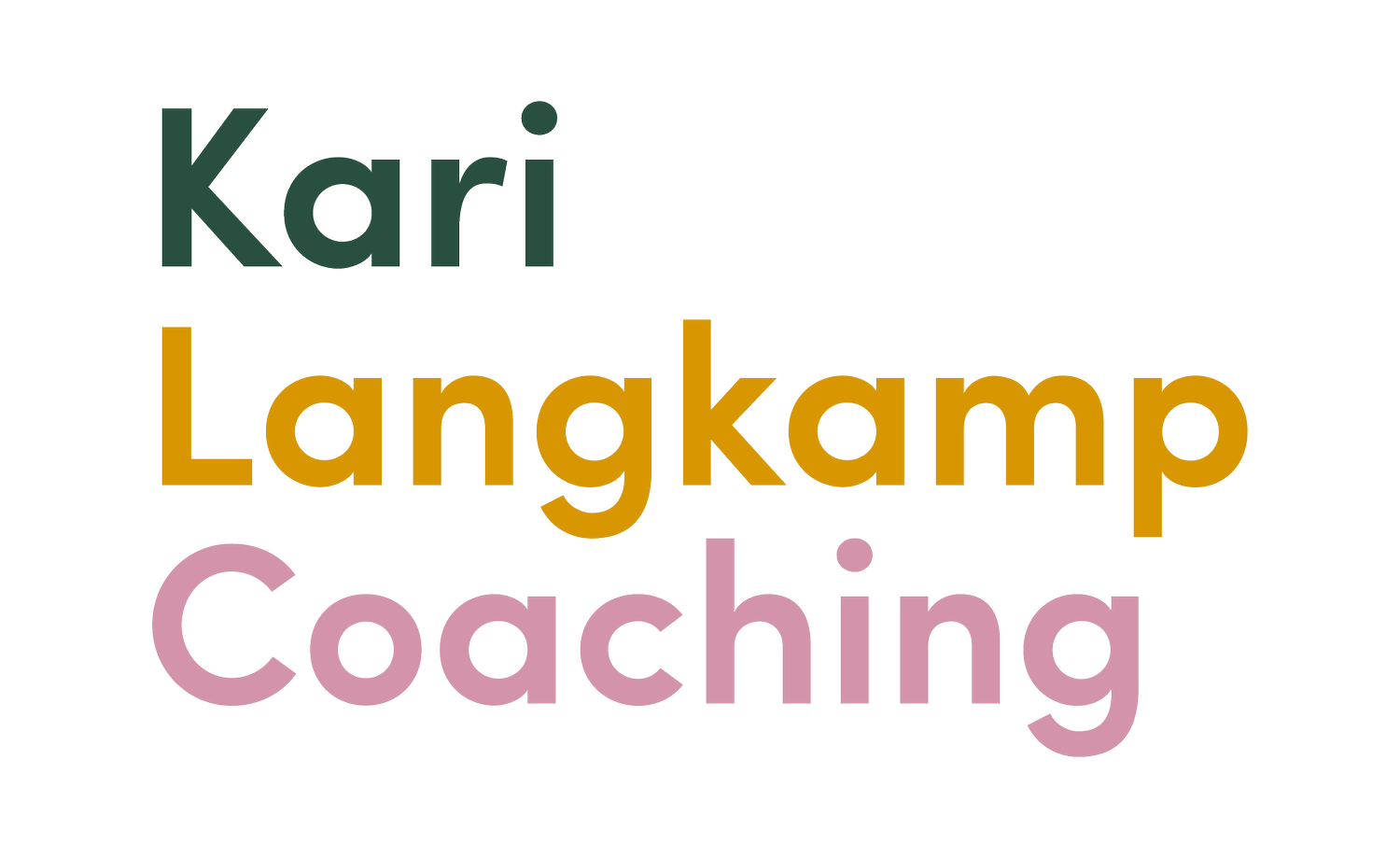Coaching for Your Life - By Kari Langkamp
What if you did know?
Before coaching, “I don’t know” was a fairly common phrase in my mind. What should we do this weekend? I don’t know. Which of these things should I keep? I don’t know. Should I buy this car or not? I don’t know. Where do I start with this project? I don’t know. What should I write about this week? I don’t know.
It’s true, that the last one might be a thought that led me to this topic, but it also comes up frequently in client sessions. So many clients are telling themselves they don’t know what to do, what they want, how to proceed, etc. Sometimes on seemingly small decisions, and often on “big” things.
However, “I don’t know” is rarely true. When we explore these “I don’t know…” phrases in a coaching session, clients usually realize they do know what they want to do or choose, but they are holding back on deciding for some reason. Exploring those reasons is where things get interesting and it allows us to take ownership of what we’re creating and make a decision.
For example, if I continued to believe the story that my brain was offering that said I don’t know what to write for this week, then I wouldn’t write anything. In fact, I would likely avoid writing and procrastinate. I would probably avoid trying to find a topic, instead occupying myself with other things that aren’t urgent like cleaning, social media, snacking, and so on. I would probably be judging the ideas I do have, questioning my possible choices, and just generally worrying about making a choice.
Not surprisingly, none of those actions move me closer to knowing what to do.
To move out of this uncertainty, I like to ask a few helpful questions. The first one is what would I choose if I did know? This question shifts the focus in our minds and lets us play with what might be possible, without the pressure to actually move forward on it immediately.
When I asked myself this question this week, the answer was, “If I did know, I would just get started with a topic from my list.” And I quickly reminded myself that I have many experiences and ideas to choose from when writing. My brain started thinking about the ideas more openly and with curiosity.
And that leads to the next powerful question. If I assume for a bit that I did know the answer to my question, then I ask "why would it be a problem to make that choice?" The answers to this will depend on the thing you believe you “don’t know.” It often sounds like, “I might make the wrong choice” or “other people won’t like what I choose” or “it might not work” or “I might regret it later.”
These kinds of thoughts are usually the reason we want to believe “I don’t know.” Because we don’t want to feel discomfort if we happen to make a “wrong” choice or if someone said they didn’t like our choice. It’s natural for us to try to avoid that potential future discomfort, but the problem is that indecision doesn’t usually feel very good either. And while believing I don’t know prevents future worst-case scenarios, it also prevents the best-case scenario too.
So the next time you hear yourself saying “I don’t know,” question it. What if you did know?
Do you have a question for a Master Certified Life Coach? Please send your questions to kari@heykarianne.com OR submit via the “Ask Kari” page at heykarianne.com.

